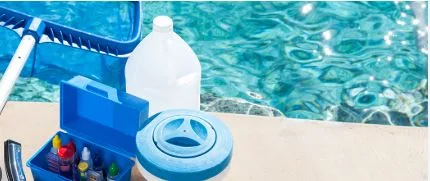Clear Waters Ahead: The Ultimate Guide to Caring for Your Pool
A swimming pool can be the crown jewel of a backyard, offering relaxation, recreation, and even exercise. But behind the calm, sparkling surface lies a balance of chemistry, cleanliness, and mechanical function that must be consistently maintained. A pool, much like a car or a home, needs ongoing attention to remain safe, clean, and beautiful.
Understanding how to care for a pool goes beyond skimming leaves or adding chlorine. It involves a combination of regular routines, smart tools, and knowing what to do when problems arise. This guide explores the entire world of caring for a swimming pool, offering both beginners and experienced owners practical tips to keep things running smoothly.
The Basics: What Pool Care Entails
Pool ownership requires more than just diving in on a sunny day. It’s a balance of water chemistry, physical cleanliness, and equipment functionality.
1. Water Chemistry
- pH Levels: This should generally stay between 7.2 and 7.8. Too low and the water becomes acidic, damaging surfaces and irritating skin; too high and it loses its sanitizing efficiency.
- Chlorine or Sanitizer Levels: Chlorine helps kill bacteria and algae. Too little, and the water becomes unsafe; too much can irritate eyes and skin.
- Alkalinity: Acts as a buffer for pH levels and should be kept between 80–120 ppm.
- Calcium Hardness: Important to prevent corrosion or scaling. Should stay between 200–400 ppm.
- Stabilizer (Cyanuric Acid): Protects chlorine from sunlight degradation.
Testing water chemistry at least twice a week is vital. This is easily done using test strips or digital kits, which provide a clear snapshot of what’s happening inside the water.
2. Cleaning
Cleaning a pool isn’t just about aesthetics. Dirt, leaves, insects, and body oils introduce contaminants that can feed algae and bacteria.
- Skimming: Daily removal of debris using a net.
- Brushing: Weekly brushing of walls, steps, and corners prevents algae buildup.
- Vacuuming: Removes sediment and debris from the bottom. Automatic pool cleaners can help, but manual cleaning ensures detail.
- Filter Cleaning: The filter system—whether sand, cartridge, or DE—traps dirt and particles. Clean it according to usage and manufacturer’s guidance.
3. Equipment Care
- Pump: Should run daily (often 8–12 hours) to keep water circulating and filtered.
- Filter: Needs periodic backwashing or cleaning, depending on type.
- Heater: If used, inspect seasonally for blockages or wear.
- Timers & Automation: Smart systems make pool upkeep easier. Keep software updated and test automation monthly.
Seasonal Considerations
Each season brings its own set of tasks. Knowing how to transition between them keeps your pool ready year-round.
Spring: Opening the Pool
- Remove cover, clean thoroughly
- Refill water if needed
- Reconnect equipment
- Shock the water and balance chemicals
- Run the pump for 24–48 hours before use
Summer: Peak Maintenance Season
- Check chemical levels more frequently due to heat and use
- Clean filters more often
- Monitor water loss from evaporation and refill as needed
- Watch for algae growth, especially in shady or warm corners
Fall: Prepping for Dormancy
- Remove debris regularly, especially fallen leaves
- Begin reducing chemical levels
- Shorten pump run-time as water temperature drops
Winter: Closing the Pool
- Lower water level to below skimmer (if applicable)
- Drain pumps, heaters, filters to avoid freeze damage
- Add winterizing chemicals
- Securely cover the pool to prevent debris or damage
Common Problems and Solutions
Even the best-maintained pools run into trouble. Knowing how to identify and fix common problems is key.
1. Cloudy Water
Often caused by unbalanced pH, dirty filters, or insufficient sanitizer. Solution: Test and adjust chemicals, clean the filter, and shock the pool.
2. Algae Blooms
Green, yellow, or black algae can quickly take over. Often a result of poor circulation or low chlorine.
- Brush vigorously
- Shock the pool with high levels of chlorine
- Run filter continuously until cleared
- Use algaecide if needed
3. Scaling or Staining
Calcium or metal buildup leaves white or discolored marks on surfaces.
- Use a descaler
- Maintain calcium and pH balance
- In extreme cases, acid wash the pool (professionally)
4. Equipment Failures
Clogs, leaks, and motor problems are common. Regular inspection and maintenance prevent long-term damage.
- Listen for odd noises
- Check for water leaks or air in the pump
- Clean skimmer and pump baskets weekly
Tools and Accessories That Make Life Easier
Maintaining a pool manually is possible, but modern tools make the job faster and more precise.
- Automatic Pool Cleaners: Robotic, suction-side, and pressure-side cleaners scrub and vacuum with minimal effort.
- Telescopic Poles: Attach skimmers, brushes, or vacuums.
- Floating Dispensers: Gradually release chlorine tablets.
- Pool Covers: Prevent debris, retain heat, and reduce evaporation.
- Smart Monitors: Real-time readings of pH, chlorine, and temperature sent to your phone.
The Importance of Routine
Consistency is everything when it comes to pool care. A simple weekly routine can prevent the vast majority of problems:
Weekly Checklist:
- Test and adjust water chemistry
- Skim the surface
- Brush walls and corners
- Vacuum floor
- Empty baskets
- Check equipment for wear
By building these habits, the workload becomes manageable and predictable.
The Role of Professionals
Some pool owners prefer to handle everything themselves, while others opt for professional help. Hiring an expert for pool maintenance can be worthwhile—especially if you travel frequently, have a commercial pool, or simply want peace of mind.
A professional service typically includes:
- Weekly chemical balancing
- Full cleaning (skimming, brushing, vacuuming)
- Equipment checks
- Seasonal opening and closing
Even if you do most tasks yourself, a quarterly professional inspection is a smart investment to catch hidden issues before they become costly repairs.
Sustainability and Pool Maintenance
Eco-friendly pools are becoming more popular, driven by rising water costs and environmental awareness. There are several ways to make your maintenance routine more sustainable:
- Variable-Speed Pumps: Use up to 80% less energy than traditional single-speed motors.
- Solar Covers: Reduce water evaporation and heating needs.
- Saltwater Systems: Require less chlorine and are gentler on skin and equipment.
- Rainwater Collection: Use collected rain to top off the pool instead of tap water.
- Natural Pools: Use biological filters and plants to purify water—no chemicals needed.
Implementing even a few of these can significantly reduce the environmental footprint of your pool.
Myths About Pool Care
Misinformation is common, and believing myths can lead to bigger issues. Let’s debunk a few:
- “More chlorine means cleaner water.” False. Over-chlorination can cause irritation and damage without necessarily improving sanitation.
- “You don’t need to brush the pool if you vacuum.” False. Algae cling to walls where vacuums can’t always reach.
- “You only need to test water when it looks dirty.” False. Water can appear clean while harboring imbalances or bacteria.
- “Rainwater is good for the pool.” False. Rain can actually dilute chemicals and introduce contaminants.
Knowledge is just as important as tools when it comes to effective pool maintenance.
Final Thoughts
Owning a swimming pool is a lifestyle choice—one that comes with responsibility but also great reward. Clear water, smooth functioning equipment, and an inviting atmosphere don’t happen by accident. They’re the result of consistent effort, understanding, and adaptation.
Whether you do it yourself or hire help, whether it’s your first season or your fiftieth, mastering the art of pool maintenance ensures that your aquatic escape remains a source of joy, not stress. And with the right routines in place, the water will always be ready when you are.







